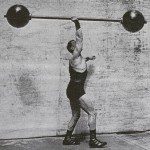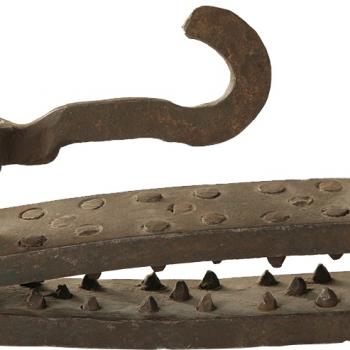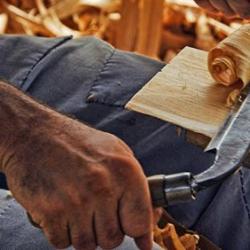
If you follow this blog you know that I believe that productive property is the material basis of a household economy. Without it a household falls into servitude, either through wage-slavery to another institution, or to the welfare state by depending upon its largess.
Most of the people I talk to understand this. But there remains the problem of manumission–how do you purchase your freedom?
Just like slaves in antiquity, purchasing your freedom will cost you a great deal, and it will take years of hard work to do it. Even so, it may not even work out. But it is worth the effort. If you’re going to fail at something, make it this.
The Professions
Some vocations serve the interests of the larger community and depend upon productive property in an attenuated sense. The professions historically did so.
Today we think a professional is someone who is paid for his work. That’s because the professions have been co-opted by the market economy. (It’s a sordid tale.) But ideally the professions stand outside of the market and serve the whole community irrespective of a person’s ability to pay for a professional.
The word profess, is where, “profession” comes from. Professionals are people with a form knowledge that they really can’t claim as their own. They are stewards. (A college “professor” is a contemporary example.) And the three professions that made an ordered, healthy, and meaningful community possible historically were, law, medicine, and the ministry.
I’m a minister, and as such I am a steward in God’s house. Using the ministry for personal gain is a no no, it would be a betrayal of my trust. The Gospel isn’t my property, and I can’t sell it.
But that doesn’t mean having something on the side is a betrayal of my trust. Actually, I think having something on the side can make me a better professional and more trustworthy.
Virtue
But how do you get started? How do you acquire productive property?
What follows is not a “to do list”. I don’t believe in those. The way to getting ahead in a world as complex and interesting as ours is can’t be reduced to a list. Situations vary. Better to begin with a “to be list.” Problem is, to be something you must do something. It”s a bit chicken and egg, but that’s how virtue works.
When we think about virtue we tend to think it is synonymous with morality. But if we dig down to the origin of the word we’ll see it actually has more to do with manliness than morality.
The prefix, vir should serve as your clue–its where we get the word virile for example–as in a fruitful man, or a man of action. What follows is a very rough and inadequate summary of how virtue went from manliness to morality.
The way the story is told virtue was what made a warrior successful. Speaking of lists, people began making them for warriors, almost like job descriptions. What would you include in a list of attributes for a warrior? Courage? Of course. How about strength or cunning? Believe it or not, those often made these lists. And this shows us just how differently people thought about virtue back then.
But this was before Socrates. Before him virtue was more inclusive, even somewhat amoral. Getting to what we now think of virtue happened in a couple of steps. First, people realized you could make lists for all sorts of people, potters need to be “crafty”, i.e., good with their hands. Housewives should be frugal when they manage a household, getting as much as possible for as little as possible, and so on.
But it was Socrates who said, “You know, we have all these lists. One for every occupation. How about a list of things we’d like in every person?” And that’s how we got the moral virtues we know today. (Terribly simplified, I know. Please indulge me.)
I once heard someone say, The virtue of the knife is in the cutting. What he meant is, it’s when something works as it should, we can call it virtuous, or even manly. Knives aren’t people, nor are people knives. But hopefully you can see what I’m getting at, people are good for something.
Aristotle you probably know was a student of Plato. Nevertheless he felt something was lost in his teacher’s tendency to favor the general over the particular. He felt we should revive the old lists. Toward this end he made a couple of lists. One he called intellectual virtues, and the other practical.
Acquiring productive property is something the second list can help you with.
Economic Virtues
One of the things Aristotle tried to do is situate virtue in society. He said we’re social animals. So good things ought to be good for others as well as ourselves.
And according to Aristotle the most basic human society is a household. He meant something bigger than what we usually mean by that today. For Aristotle a household is a working community, not just a place to crash after you come home from work. To be a working community you need something to work on. That’s where productive property comes in.
But as I’ve thought about it, it seems to me that we can break down the practical virtues further when it comes to this, and put them into two groups.
One group would include what we need from every member of a household. A list of these virtues could look a lot like Plato’s list of universal human virtues. I think you’d have something like honesty or integrity at the very base. Then you’d want a willingness to work, what we call a “work-ethic”. Above that you’d want frugality, or thrift, the ability to hold on to gains, and to live below your means. You may even want to throw in cheerfulness so that people are pleasant to be with as you work with them. What you get with this list is a good doobie.
I hope you can see the problem here. You can be a good doobie your whole life and spend your life working for other people. Being a good doobie won’t get you productive property. For that you’ll need something more.
The Mystery of Manliness and the Main Chance
You can think of good doobie virtues as rungs on a ladder. Many people climb the ladder only to stop at the last rung on the good doobie list. These people look around believing they’ve done everything that can be done and they’re ready to have all the good things in life. Instead they’re appalled to see people higher up the ladder. And worse, many of those people are not as good as they are! They’re not honest or even pleasant. How can this be?
The good doobie can’t see how to get where these people are because the next rung you could say requires a manly leap to reach. Once on it there are other rungs above it that call for an increasing degree of manliness to climb. I call these virtues the virtues of the main chance.
Okay, I take back what I said about to do lists. Here’s one:
First, you need to see your main chance.
This is not so much the ability to see the world as it is, as it is the ability to see what it could be. (More people have this ability than you may suppose.)
My productive property is mostly held in the form of investment real estate. Here you need to be able to see the difference between what a property is in its current state (given market conditions) and what it could be. This difference will be your return once you’ve done the work to realize it (so long as conditions remain favorable). This is the way any form of productive property works, not just real estate.
Nevertheless, most people who can see this don’t do anything besides see. In order to take the chance another virtue is called for.
Second, you must have the courage to take the chance.
This separates the men for the boys. The reason is the possibility of failure. And people do fail. Hey, that’s life. If you want a life without the possibility of failure, go on the dole. But then you’ll fail in another way. And if we all go on the dole, we will all fail in the biggest way imaginable.
But men take risks. It’s just that simple. You can be prudent, and you should be. You should have a back up plan in the event of failure (you’ll probably need it). But know this for certain: good doobies play it safe and work for other people. Men take risks. And when those risks work out, they enjoy a measure of freedom good doobies can’t understand.
Third, persistence, which is another way of saying, you keep taking the same chance over and over again.
I’ve seen people crumble after step two. This is where audacity and confidence are indispensable. It’s also where some of the good doobie virtues come back for an encore. Whereas before a good work ethic was seasoned with cheerfulness, now it is seasoned with confidence. You can fail at this stage too. But even so, there really is no going home again to good doobieville once you’ve left that behind.
In my experience though, once you’ve experienced the mystery of manliness, you don’t want to go back.












